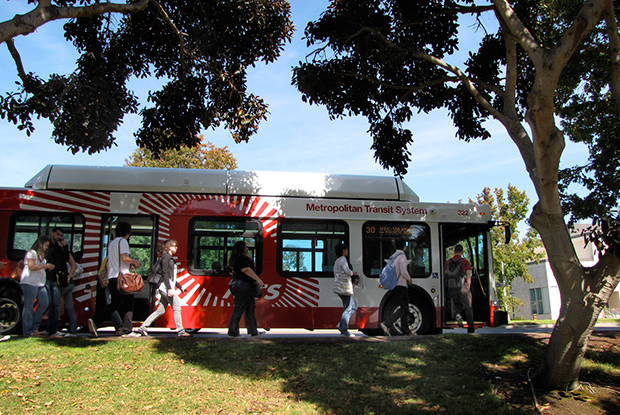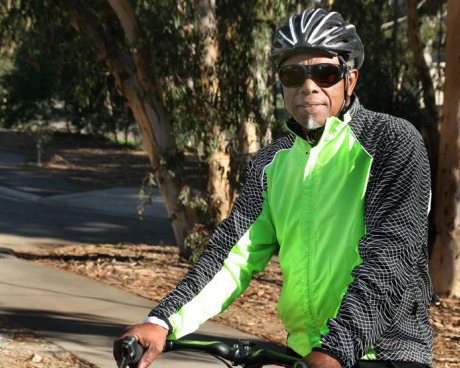UC San Diego First in Countywide iCommute Challenge
By:
- Jade Griffin
Published Date
By:
- Jade Griffin
Share This:
Article Content

At UC San Diego, 59 percent of commuters use alternative transportation.
The University of California, San Diego placed first in SANDAG’s 2012 iCommute Rideshare Corporate Challenge, which encouraged employees at local companies and organizations to use alternative, sustainable commute choices—including carpool, vanpool, transit, biking, walking, teleworking or compressed workweek—during the month of October.
UC San Diego won in the “Mega Company” category, comprised of employers with 5,000 or more employees. Other San Diego “Mega Companies” that participated in an effort to make a positive impact on San Diego included the Naval Medical Center, Qualcomm and Sharp HealthCare.
“We are thrilled to receive this honor and we thank all of UC San Diego’s iCommute participants for promoting a clean environment for San Diego,” said Robert Holden, director of Auxiliary Business Services, which oversees Transportation Services at UC San Diego.
Countywide, nearly 300,000 alternative commute trips were taken as part of the SANDAG-sponsored program. According to SANDAG, the program saved vehicles from traveling 11.7 million miles—enough to circle the Earth 471 times. Participants saved more than 500,000 gallons of gas and prevented 10.2 million pounds of carbon dioxide emissions.

UC San Diego won the SANDAG iCommute Challenge in the “Mega-Company” category.
Today, 59 percent of UC San Diego commuters use alternative transportation—up from just 34 percent in 2000. “The university is continually working to provide innovative and sustainable commute options for our faculty, staff and students,” said Holden. “Transportation Services has played an important role in the overall effort to reduce the carbon footprint of the campus.”
As alternatives to driving a vehicle to campus, UC San Diego Transportation Services offers a wide range of commute solutions including: public transit, carpool, vanpool, Coaster Club, Pedal Club, ZimRide access, campus shuttles and more. In addition to supporting a cleaner environment, alternative transportation reduces parking space demand on campus and helps alleviate traffic congestion in nearby neighborhoods.
“I have used alternative transportation, including the Coaster, campus shuttles and biking, for 18 years,” said Meredyth Potter, who works as marketing manager at the UC San Diego Bookstore. “The iCommute Challenge offered an easy method for UC San Diego employees to track their commute trips and help quantify our environmental contributions to the region.”
With the shift in usage of alternative transportation over the past decade and more public transportation options, including the light rail transit service slated for the future, Transportation Services recently embarked on an initiative to garner input from the campus community on how the department can best meet the access needs of faculty, staff and students.
Based on survey feedback from the campus, Transportation Services is currently developing enhancements and transitions that will ensure that the department is able to provide sustainable transportation options to the campus community long into the future.
For more information on alternative commute solutions at UC San Diego, visit parking.ucsd.edu. For details on the iCommute Challenge, and year-round commute options and tracking, please visit icommutesd.org.
Share This:
You May Also Like
Stay in the Know
Keep up with all the latest from UC San Diego. Subscribe to the newsletter today.



